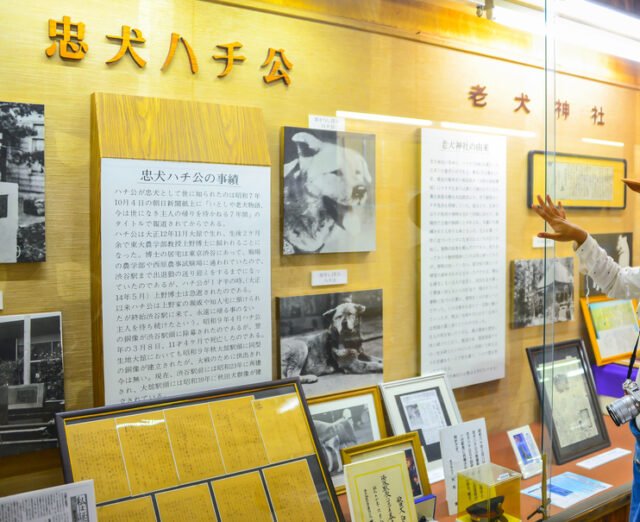Your story matters,
and many of the chapters in the book
of your life are yet to be written.
To this day, there are conflicting theories on just how the beloved Akita of Japan was named. In 1934, Kishi Kazutoshi gave credit to Yae, Dr. Ueno’s wife, in “The Tale of Loyal Dog Hachi-kō.”
However, Kaneko Osamu released a study of local heritages in Japan. In 2006, he wrote that Dr. Ueno named Hachi because it was a popular name for dogs in his hometown of Mie prefecture. Given these two ideas, neither view is entirely persuasive.

The decisive clue came from the four Akita puppies that Dr. Ueno had raised previously. They were named Tarō, Tarō II (or Jirō, depending on the source), Gorō, and Rokurō (or Roku).
Tarō was the most common name for the first-born boy in Japan. Jirō refers to the second-born boy. This means that Dr. Ueno used the numerical sequence in naming his Akita puppies. He skipped the numbers three and four, probably because Saburō (meaning ‘the third-born boy’) would overlap with Dr. Ueno’s name, Hidesaburō. In turn, Shirō (meaning ‘the fourth-born boy’) does not sound good as “shi’ also means “death.”
To continue in this precise sequence, it follows that the third puppy was named Gorō (meaning ‘the fifth-born boy’). Then, the fourth puppy was named Rokurō (meaning ‘the sixth-born boy’).
Hachi was the seventh dog to be introduced into the household. It seems natural that he should have been named Shichirō (the seventh-born boy). The problem was that people in Tokyo spoke the traditional Tokyo dialect, as some Londoners in England spoke with a Cockney accent.
Many Tokyoites could not pronounce the word “shichi” (seven) articulately and pronounced it “hichi,” instead. Because of this, Dr. Ueno might have skipped seven and named the puppy Hachirō (meaning ‘the eighth-born boy’) and called him Hachi.
The mystery resolved?
In this author’s opinion, Hachi was most likely named after the number eight (hachi).
Who would believe a frail puppy would have the strength to capture the hearts of an entire nation…then the world? But as we know, he did. Now, thanks to Hachi historian/author Mayumi Itoh’s landmark research, we can trace every step of his miraculous story.
In each Hachiko Snapshot, you can follow Hachi’s incredible journey from sickly puppy to worldwide icon. On the 14th of each month, his birthday – right here on the blog.
Author Mayumi Itoh is considered the “official biographer” of Hachiko. Mayumi is a former Professor of Political Science at the University of Nevada, Las Vegas, and has previously taught at Princeton University and Queens College, City University of New York. She currently teaches haiku writing at Princeton University.
Mayumi is best known to Hachi friends for Hachiko: Solving Twenty Mysteries about the Most Famous Dog in Japan. She is the author of a dozen books on politics, including Japanese Wartime Zoo Policy and Animals and the Fukushima Nuclear Disaster. In addition, Mayumi has written 22 haiku collections, including Haikus for Hiroshige’s One Hundred Famous Scenes of Edo.
Your story matters,
and many of the chapters in the book
of your life are yet to be written.
Explore resources designed to help you grow, heal, and move forward with clarity and confidence.
Wherever you are on your journey, the Vicki & Hachi Resources Page offers tools, stories, and insights to help you move forward—with heart, purpose, and resilience.
Plus, we’ve experienced that our loyal, canine companions possess innate wisdom and are often our best teachers.
As always, Mayumi Itoh explores the mystery of Hachi’s name with painstaking research and precision.
Her monthly snapshots are a ‘must’ for true friends of the Loyal Dog!
Mayumi has made Hachi’s true-life history her life’s work.Through painstaking research, she provides much of what we know about the iconic Akita today. Hachi friends can look forward to her generous book revision in celebration of Hachi’s 100th birthday in 2023!